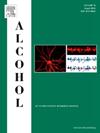Alcohol treatment preferences and the acceptability of virtual reality therapy for treating alcohol misuse in adult drinkers
IF 2.9
4区 医学
Q3 PHARMACOLOGY & PHARMACY
引用次数: 0
Abstract
Alcohol misuse affects a large part of the population worldwide, with high relapse rates reported even post-treatment. Treatments are also not always available, for example during the COVID-19 pandemic when social distancing measures affected the availability of in-person approaches. Novel treatments like Virtual Reality Therapy (VRT), delivered via a standard VR headset or a mobile device, may offer a flexible alternative for reducing drinking and assisting relapse prevention, but little is known about their acceptability. We therefore explored the acceptability of VRT alongside the treatment preferences of adult drinkers in an online survey. Participants were asked to consider and rank order a range of treatments typically offered by healthcare services alongside standard and mobile VRT in order to determine their relative preferences. Acceptability of each treatment was also established. Additional questions addressed potential predictors of VRT's acceptability including familiarity with each treatment option presented, prior experience of VR, hazardous drinking, perceived stigma, treatment uptake attitudes, gender, ethnicity, and mental health. Of 259 participants, more than half (52.9%) were drinking at hazardous levels. The majority of respondents (86.9%) expressed a preference for in-person treatments. Cognitive Behavioral Therapy, Counseling, and 12-Step Facilitation Therapy were considered the most acceptable treatments, whereas VRT, and particularly mobile VRT, were perceived as less acceptable than traditional treatments. Treatment familiarity and preferences, prior VR experience, mental health, treatment uptake attitudes, and perceived stigma were all associated with the acceptability of VRT. Psychoeducation and familiarization processes in delivery protocols, and in-person delivery of VRT, could increase the acceptability of VRT, particularly for people who are not regular technology users, or who require concurrent mental health support.
酒精治疗偏好与虚拟现实疗法治疗成年饮酒者酒精滥用的可接受性。
酒精滥用影响了全世界很大一部分人口,即使在治疗后也报告了高复发率。治疗也并非总是可用,例如在2019冠状病毒病大流行期间,社交距离措施影响了面对面治疗的可用性。像虚拟现实疗法(VRT)这样的新疗法,通过标准的虚拟现实耳机或移动设备提供,可能为减少饮酒和帮助预防复发提供了一个灵活的选择,但人们对其可接受性知之甚少。因此,我们在一项在线调查中探讨了VRT的可接受性以及成年饮酒者的治疗偏好。参与者被要求考虑一系列通常由医疗保健服务提供的治疗方法,以及标准和移动VRT,以确定他们的相对偏好。还确定了每种处理的可接受性。其他问题涉及VRT可接受性的潜在预测因素,包括对所提供的每种治疗方案的熟悉程度、先前的VR经验、危险饮酒、感知到的耻辱感、接受治疗的态度、性别、种族和心理健康。在259名参与者中,超过一半(52.9%)的饮酒量达到了危险水平。大多数受访者(86.9%)表示更倾向于当面治疗。认知行为疗法、心理咨询和12步促进疗法被认为是最可接受的治疗方法,而VRT,特别是移动VRT,被认为比传统治疗方法更不可接受。治疗熟悉度和偏好、先前的VR经验、心理健康、治疗接受态度和感知到的耻辱感都与VRT的可接受性相关。提供方案中的心理教育和熟悉过程,以及虚拟现实治疗的亲自提供,可以提高虚拟现实治疗的可接受性,特别是对于那些不是经常使用技术的人,或需要同时提供心理健康支持的人。
本文章由计算机程序翻译,如有差异,请以英文原文为准。
求助全文
约1分钟内获得全文
求助全文
来源期刊

Alcohol
医学-毒理学
CiteScore
4.60
自引率
4.30%
发文量
74
审稿时长
15.6 weeks
期刊介绍:
Alcohol is an international, peer-reviewed journal that is devoted to publishing multi-disciplinary biomedical research on all aspects of the actions or effects of alcohol on the nervous system or on other organ systems. Emphasis is given to studies into the causes and consequences of alcohol abuse and alcoholism, and biomedical aspects of diagnosis, etiology, treatment or prevention of alcohol-related health effects.
Intended for both research scientists and practicing clinicians, the journal publishes original research on the neurobiological, neurobehavioral, and pathophysiological processes associated with alcohol drinking, alcohol abuse, alcohol-seeking behavior, tolerance, dependence, withdrawal, protracted abstinence, and relapse. In addition, the journal reports studies on the effects alcohol on brain mechanisms of neuroplasticity over the life span, biological factors associated with adolescent alcohol abuse, pharmacotherapeutic strategies in the treatment of alcoholism, biological and biochemical markers of alcohol abuse and alcoholism, pathological effects of uncontrolled drinking, biomedical and molecular factors in the effects on liver, immune system, and other organ systems, and biomedical aspects of fetal alcohol spectrum disorder including mechanisms of damage, diagnosis and early detection, treatment, and prevention. Articles are published from all levels of biomedical inquiry, including the following: molecular and cellular studies of alcohol''s actions in vitro and in vivo; animal model studies of genetic, pharmacological, behavioral, developmental or pathophysiological aspects of alcohol; human studies of genetic, behavioral, cognitive, neuroimaging, or pathological aspects of alcohol drinking; clinical studies of diagnosis (including dual diagnosis), treatment, prevention, and epidemiology. The journal will publish 9 issues per year; the accepted abbreviation for Alcohol for bibliographic citation is Alcohol.
 求助内容:
求助内容: 应助结果提醒方式:
应助结果提醒方式:


